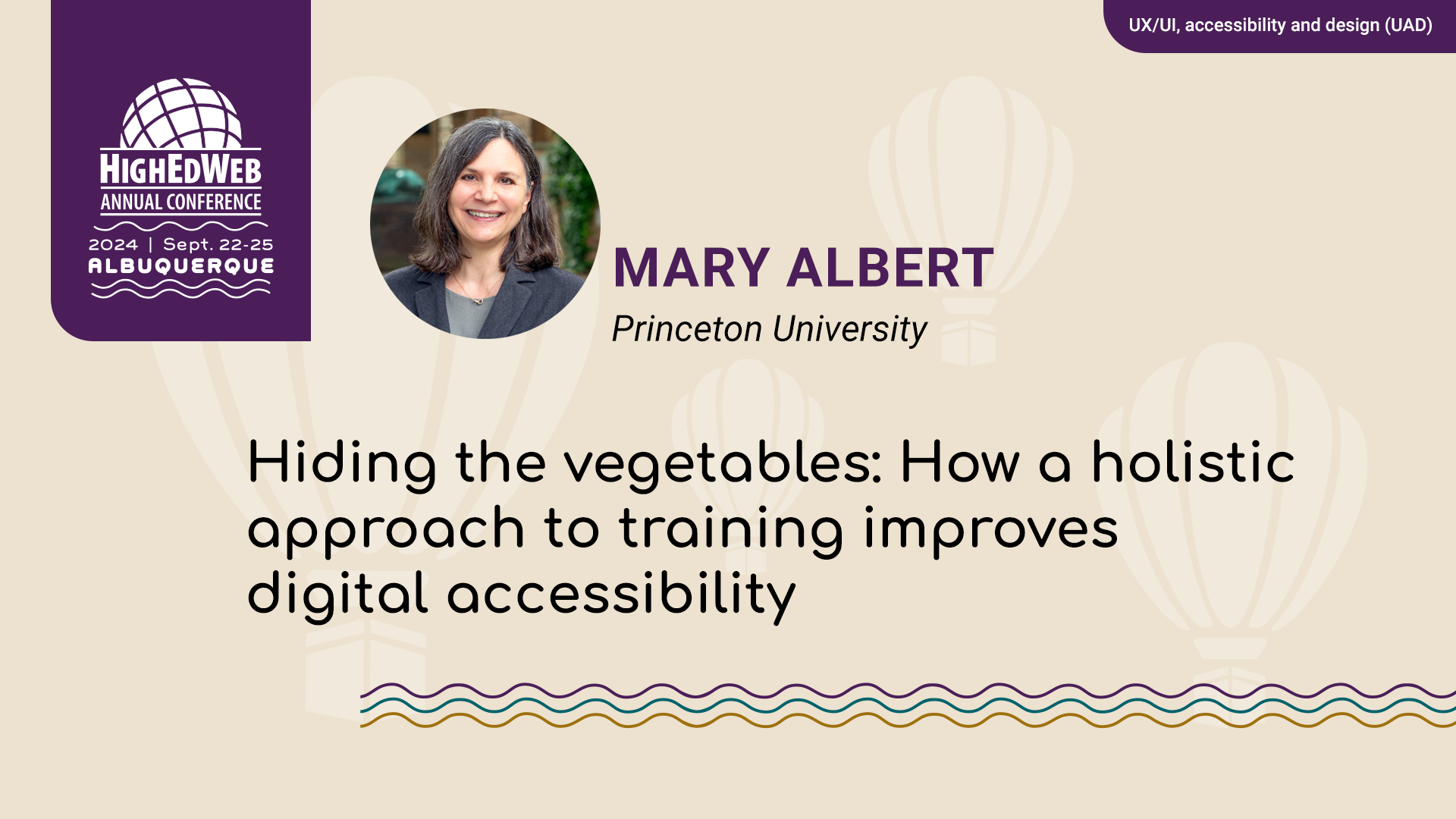As higher education institutions work toward greater digital accessibility, it is helpful to understand the approaches of peers. By examining the aspects of Princeton’s accessibility training and its associated environmental supports, colleagues can consider which practices they might adapt to their own institutions.
Princeton’s holistic approach recognizes that training is a core component of successful digital accessibility efforts. In order to be effective, training must result in new habits being applied. However, skills taught outside of the work itself, without practice, does not develop proficiency. Princeton has put in place environmental supports that help ensure staff in a variety of roles apply digital accessibility best practices to their everyday work.
The session will begin with a brief overview of the university and the digital accessibility program to provide institutional context. It will then present the development of the training and supporting environmental solutions that together ensure that IT and digital content are accessible.
Like many other programs, we have a small staff to support digital accessibility. By designing and leveraging environmental supports along with training, we are able to broaden our reach. The presentation will examine how Princeton embeds training into our environment and takes training outside the classroom and builds it into everyday job tasks. Examples include procurement, project funding and management, website editing, content development, application design, testing, and presentations and events.
We will describe how the digital accessibility team designed and implemented each support, and provide measures of its effectiveness. By sharing Princeton’s holistic training approach, the presenters hope to provide insights and ideas that will assist colleagues at other institutions in the development of their own solutions.
Presenter
Mary Albert — Princeton University
Log in
Please log in to access the recording, slides and other session materials. Paid members have full access to the entire library.
New members
HighEdWeb offers several membership classes. Join today as a premium, affiliate, student or institutional member for full access to this session. Become a paid member.
Shortcode
UAD8
